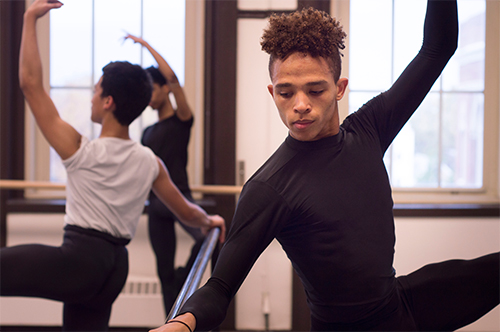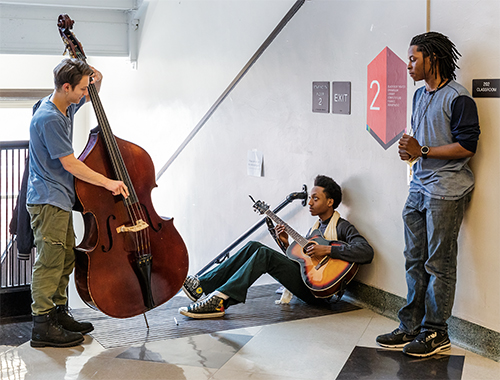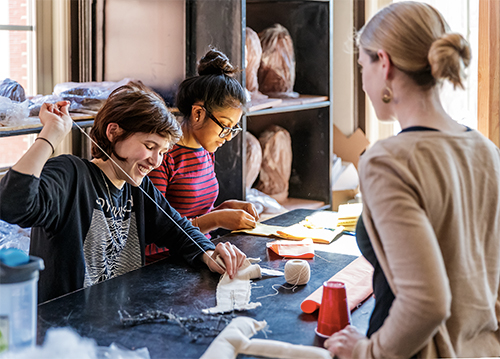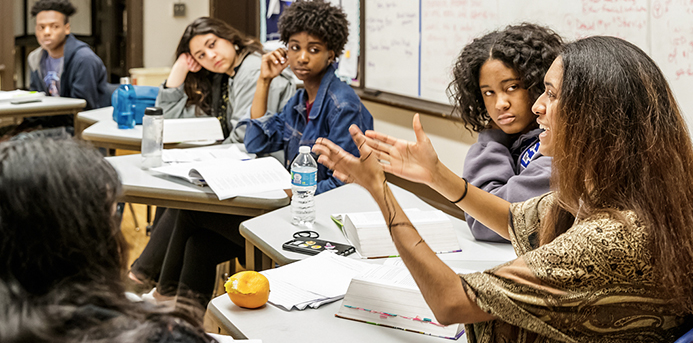Reginald Harris — currently lead social worker at BrightLife Transitional Living Program at Lighthouse Youth and Family Services in Ohio — thought he was making a massive career shift when he left his role as Dance Department Head at The Chicago High School for the Arts (ChiArts®) to pursue a master’s degree in social work. When his studies turned to the landmark study on Adverse Childhood Experiences (ACEs), however, the first connection he made was back to his ChiArts dance students.
Simply put, the study reveals how toxic stress from childhood trauma can harm the developing brain of a young person. “I began to think of my former students in a different light and realized how ACEs early in life had affected their ability to thrive in my dance studio. I was well trained in the tradition of teaching classical ballet, and I knew I was a good teacher. I had great results at ChiArts. But I was not a compassionate teacher. Compassion isn’t at the forefront of classical ballet pedagogy.”

The more Harris learned about the science behind ACEs and their long-term impacts, the more his entire approach to teaching began to change. While maintaining the rigor of his ballet classes, Harris now takes a more compassionate approach toward all students, especially those who he knows have experienced trauma. This shift in thinking caught the attention of his former boss José Ochoa, executive and artistic director of The Chicago High School for the Arts, when they met for lunch in Boston two years ago. Ochoa noted that, “I think it’s an epidemic, that arts organizations are ill-informed about trauma.”
After that lunch, Harris and Ochoa set about on a mission to transform the way arts education is taught to students, especially those most affected by trauma. “We are currently defining how ChiArts will be a trauma-informed school with more formalized policies, practices and staff development. Although there are wonderful national models for schools, our unique structure demands that we dig deeper and come up with strategies that translate to the arts.”

Last October, Harris and ChiArts Principal Michael Wang partnered on a presentation to the National Guild for Community Arts Education to discuss the issue of trauma and how to begin approaching arts education through a trauma-informed lens. A version of this presentation was also given at a recent ChiArts board meeting, where special guests were invited to hear Harris’ talk. Maggie Litgen, manager of ACEs (Adverse Childhood Experiences) Programs at Health & Medicine Policy Research Group in Chicago, attended the special presentation and commented on how childhood trauma can affect teaching in the arts: “A trauma-informed approach is required in all types of education, including the arts. ChiArts has been a leader in recognizing this distinction and the Illinois ACEs Response Collaborative is proud to partner and support the improvements underway to create a trauma-informed school that not only breeds excellence, but also holistically attempts to incorporate the impact of ACEs into their daily practices as a school and an artistic leader in the city.”

ChiArts isn’t the only local organization recognizing how important a trauma-informed approach is. Mercy Home is incorporating trauma-informed care into its services and support of Chicago children and families, too — and to great effect.

